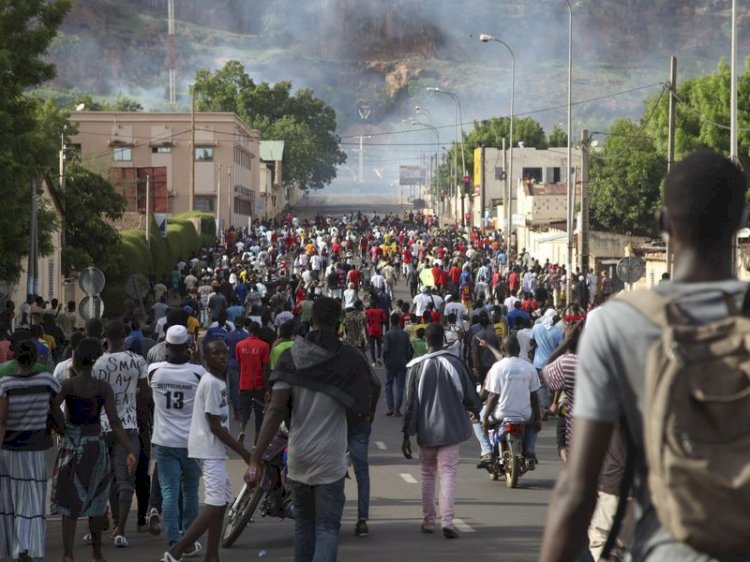West African Leaders Meet on Mali Coup as Condemnation Grows

West African leaders will meet Thursday to discuss the military coup that toppled Malian President Ibrahim Boubacar Keita, as international condemnation of the military takeover grows.
The Economic Community of West African States is trying to help resolve the crisis following earlier attempts to mediate between Keita’s government and a popular protest movement demanding his resignation. Further instability in Mali could be exploited by Islamist insurgents in the north that have staged increasingly violent attacks in the region despite the presence of a 15,000-strong United Nations peacekeeping force.
While the regional bloc has activated its standby force, it’s unlikely to intervene militarily as it did in 2017 to end a political crisis in Gambia, said Paul Ejime, an Abuja-based consultant to Ecowas on peace and security.
“The options open to it are dialog, consultation,” he said. “Deploying troops would require huge financial resources. With the pandemic, it will be difficult to assemble troops and Ecowas is already stretched with missions in Guinea Bissau and Gambia.”
Keita, 75, dissolved his government and resigned late Tuesday under pressure from soldiers who detained him hours after staging a mutiny at an army barracks on the outskirts of the capital. The junta, known as the National Committee for the Salvation of the People, has pledged to help form a transitional administration that will prepare new elections.
Keita assumed office in 2013 after winning an election on pledges to restore state authority nationwide, 16 months after a coup that ousted his predecessor, Amadou Toumani Toure.
A military junta in Mali promised to organize new elections amid international condemnation after forcing President Ibrahim Boubacar Keita to resign. (Source: Bloomberg)
The UN Security Council added to the chorus of international criticism of the army takeover, which was condemned by the U.S., France and the European Union, among others.
READ ALSO:
African Union suspends Mali following coup
South African President Cyril Ramaphosa, the current chairman of the African Union, urged an “immediate return to civilian rule” and demanded the military release Keita and other government officials, including Prime Minister Boubou Cisse, who are still held at the barracks.
It’s not clear who would lead the transitional administration and to what extent the junta has ties to the M5-RFP protest movement, an alliance of activists and opposition politicians supported by the conservative, Saudi-trained preacher Mahmoud Dicko. Calls to his phone didn’t connect when Bloomberg tried to reach him for comment.
The situation is reminiscent of the 2012 coup, which was staged from the same barracks where Tuesday’s mutiny started and organized by junior officers angry about the lack of resources needed to fight Tuareg separatists. The subsequent power vacuum was exploited by al-Qaeda-linked Islamist groups who seized control of the north.
A French military intervention pushed back the militants, but some groups later returned and expanded to carry out attacks on civilians and peacekeepers. The insurgency has since spread across the region to countries including Niger and Burkina Faso.
“A prolonged political crisis almost certainly will worsen security conditions in Mali, and it may hasten the conflict’s expansion,” said Judd Devermont, director of the Africa Program at the Center for Strategic and International Studies in Washington D.C.
SOURCE: Bloomberg






































